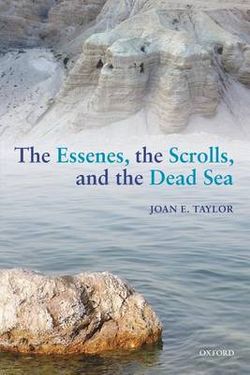reviews the surviving historical sources, and supports an understanding of the Essenes as an influential legal society, at the centre of Judaean religious life, held in much esteem by many and protected by the
Herodian dynasty, thus appearing as 'Herodians' in the Gospels. Opposed to the Hasmoneans, the Essenes combined sophisticated legal expertise and autonomy with an austere regimen of practical work, including a specialisation in medicine and pharmacology. Their presence along the north-western Dead Sea is strongly indicated by two independent sources, Dio Chrysostom and Pliny the Elder, and coheres with the archaeology. The Dead Sea Scrolls represent not an isolated
library, quickly hidden, but burials of manuscripts from numerous Essene collections, placed in jars in caves for long-term preservation. The historical context of the Dead Sea area itself, and its
extraordinary natural resources, as well as the archaeology of Qumran, confirm the Essenes' patronage by Herod, and indicate that they harnessed the medicinal material the Dead Sea zone provides to this day.



Share This Book: